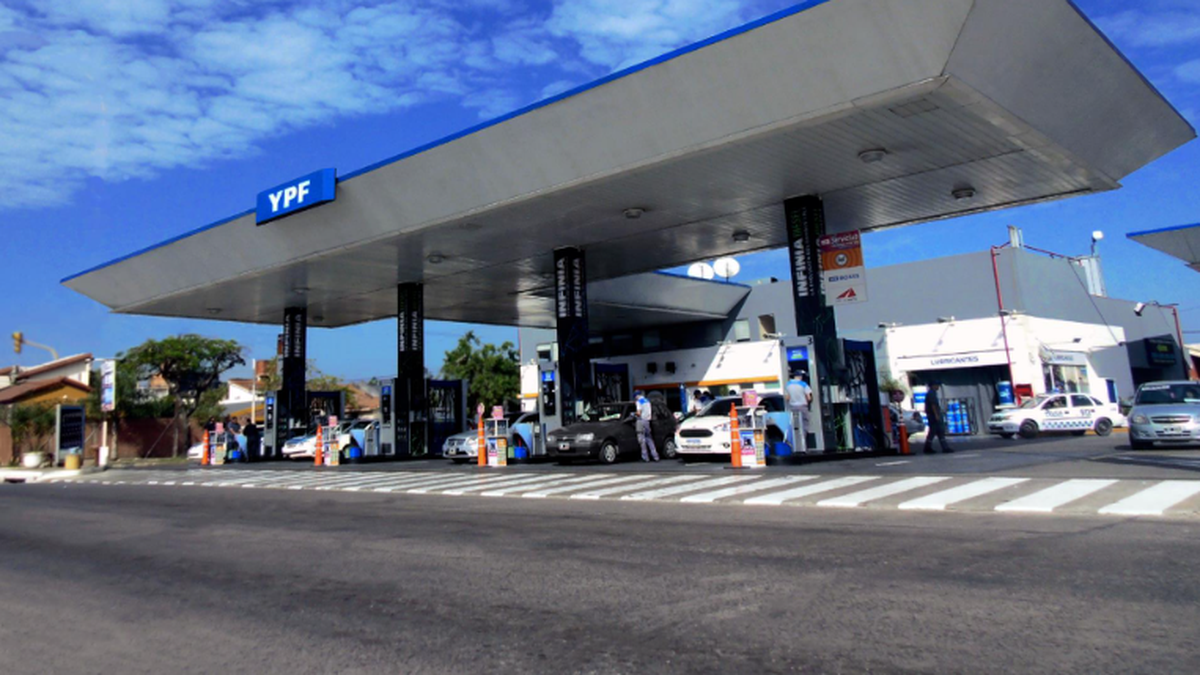In the Municipality of Santa Rosa seems to not pay more attention to the complaints of businessmen and the national government about the increase in tax pressure from subnational states, which precisely go against the intentions of the Minister of Economy, Luis Caputo, to lower tax costs.
As reported by the Confederation of Hydrocarbon and Related Trade Entities of the Argentine Republic (CECHA) in the capital of La Pampa the Safety and Hygiene rate What do gas stations pay? It went from about $65,000 a month to $6 million. It implies a jump of 9,130%.
The increase in tax pressure on service stations is in in line with other similar measures, such as the case of supermarkets in the province of Buenos Aires, and of Banco de la Nación in Santa Fe and Córdoba, where identical claims are presented. The communes stop charging the rate based on the surface area occupied by the establishments and begin to set an aliquot on billing.
In this regard, CECHA, together with its FederationsAssociated Chambers, and particularly with the Chamber of Fuel Retailers of La Pampa (CECLA), expressed “its deep concern about the recent provisions adopted by the municipality of the City of Santa Rosa, regarding Ordinance No. 6985/2023, regarding the 2024 Rate.”
The businessmen maintain that “through Resolution 422 of May 17, 2024, it was implemented an alarming change in the calculation of the Safety and Hygiene Taxwhich went from being a fixed amount based on the surface area occupied by service stations, to a variable percentage determined by invoiced sales.”
“We also understand that This criterion based on billing extends to the rest of the economic activities. of the city,” explain the service station businessmen.
From $65,000 to $6 million
In a statement they assure that “a typical service station that previously paid a fixed sum of around $65,000 per month now faces an excessive increase that turns the inspection rate for safety and hygiene into an disproportionate tax burden, similar to a gross municipal tax, where in some cases, it exceeds $6,000,000 per month.”
“This adjustment implemented by the municipality is unsustainable, considering that the net operating margins in the sector are meager and the new tax base taxes the total billed (and not the profit), doubling the rate in cases of consignment,” add the CECHA businessmen.
Roberto Martínez, head of the CECLA explained to Scope that the businessmen were until a few days ago in negotiations with councilors and municipal authorities to prevent the fee from being charged in a different way. But he explained that this Thursday they began receive notices from the municipality demanding payment. “I think we are on the path to judicialization,” Martínez explained.
The increase in the cost of the tax is so high that for a service station that sells 500,000 liters per month means the cost of four or five employees. So it is foreseeable that to avoid closure some stations will have to lay off staff if they cannot reverse the measure.
Supermarkets against Lanús
Recently Business sources linked to the Coto, Cencosur supermarkets and the Changomas chain incited legal action against the communal fees charged in Lanús. There they hope to exhaust the provincial instance to move on to the federal instance, where the judges are ruling in favor of the companies.
He Bank of the Nation is questioning the municipal rates in every city where they charge that true turnover tax and is obtaining protection against the municipalities.
To all this, the The Ministry of Commerce once again charged a hundred public service companies throughout the country who have ignored the national government’s order that prohibits them from including municipal taxes in their bills.
They opened summaries to companies in the provinces of Buenos Aires, Catamarca, Chubut, Córdoba, Corrientes, Entre Ríos, La Pampa, Mendoza, Misiones, Neuquén, San Luis, Santa Fe, Tierra del Fuego and Tucumán.
Once the notifications are received, companies will have five business days to make their discharge. Once this period has passed, the Ministry of Industry and Commerce may sanction companies that did not comply with the standard, in accordance with the provisions of Law 24,240 on Consumer Protection, which contemplates fines of up to $2,130 million. In November, the Ministry had already charged 95 companies for the same reason.
Source: Ambito
I am a 24-year-old writer and journalist who has been working in the news industry for the past two years. I write primarily about market news, so if you’re looking for insights into what’s going on in the stock market or economic indicators, you’ve come to the right place. I also dabble in writing articles on lifestyle trends and pop culture news.




